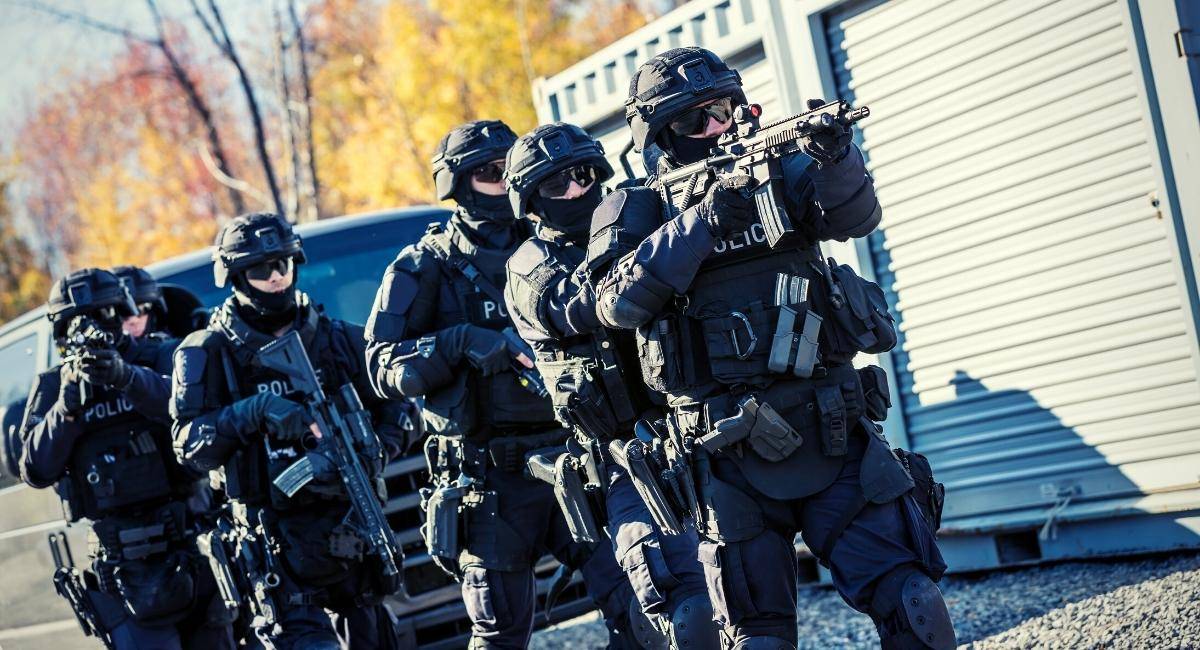The phrase search and seizure relates to a law enforcement officer performing a search of a person or property and confiscating all evidence relevant to their investigation. Police officers, however, do not get unlimited search rights and typically need warrants to conduct most searches.
Authorities have no obligation to inform individuals of their rights when they want to perform these searches, so many people often comply with requests just to avoid any confrontations. You need to know that you absolutely have the right to refuse to consent to any search of your person or property.
Illegal Search and Seizure Cases Defense Lawyer in Denton, Frisco, Lewisville, Flower Mound, TX
Were you or your loved one arrested for possession of drugs or a marijuana crime because of a possible illegal search and seizure in the Denton area? You will want to retain legal counsel as soon as possible for help possibly getting your criminal charges completely dismissed.
The Law Offices of Richard C. McConathy has a wealth of experience handling illegal search and seizure cases and knows how to prove misconduct by law enforcement. Our firm will be able to answer all of your questions when you call (940) 222-8004 or contact us online to receive a free consultation.
Search and Seizure Laws in the United States
The Fourth Amendment to the United States Constitution plainly states:
The right of the people to be secure in their persons, houses, papers, and effects, against unreasonable searches and seizures, shall not be violated, and no Warrants shall issue, but upon probable cause, supported by Oath or affirmation, and particularly describing the place to be searched, and the persons or things to be seized.
Federal law not only prohibits unreasonable searches and seizures, but it also provides that law enforcement has to obtain a warrant to conduct a search. The Supreme Court of the United States wrote in United States v. Jacobsen, 466 U.S. 109 (1984):
“The first Clause of the Fourth Amendment provides that the “right of the people to be secure in their persons, houses, papers, and effects, against unreasonable searches and seizures, shall not be violated . . . .” This text protects two types of expectations, one involving “searches,” the other “seizures.” A “search” occurs when an expectation of privacy that society is prepared to consider reasonable is infringed. A “seizure” of property occurs when there is some meaningful interference with an individual’s possessory interests in that property.”
The Fourth Amendment typically applies to all situations in which an individual has a reasonable expectation of privacy. If there is a lower or no expectation of privacy, a search and seizure will usually not be viewed as unreasonable.
One piece of property with a somewhat reduced expectation of privacy will be a motor vehicle, and this aspect is especially common in many marijuana possession cases. The Supreme Court of the United States wrote in Coolidge v. New Hampshire, 403 U.S. 443 (1971) that the “word ‘automobile’ is not a talisman in whose presence the Fourth Amendment fades away and disappears.”
Legality of Warrantless Searches in Texas
Exigent circumstance is a phrase that is used to describe situations in which law enforcement could be able to perform searches without warrants. Exigent circumstances customarily indicate that police officers had to act quickly to preserve evidence in some cases, but there is still a probable cause requirement necessary to support such searches.
Police officers are customarily afforded the opportunity to perform limited searches during investigatory stops or stops incidentally to arrests. Other exceptions to warrant requirements may include probation searches, border searches, administrative searches, and safety checks.
Searches and seizures incident to an arrest means police officers are generally allowed to search your person to ensure you are not hiding weapons or contraband. An arrest itself must be valid and authorities cannot wrongfully arrest a person just to use this exception.
If evidence of criminal activity, such as drugs, is in plain view, police are allowed to seize it. The police officers still need to have lawful reasons for being where they are when they see such evidence.
Texas Code of Criminal Procedure § 18.01(a) defines a search warrant as a written order issued by a judge and directed to a peace officer, commanding them to search for any property or thing, seize the same property or thing, and bring it before such magistrate or commanding them to search for and photograph a child and to deliver to the judge any film exposed pursuant to the order. Texas Code of Criminal Procedure § 18.01(b) further provides that no search warrant will be issued for any purpose in Texas unless sufficient facts are first presented to satisfy the issuing judge that probable cause exists for issuance of the search warrant.
A sworn affidavit that sets forth substantial facts establishing probable cause has to be filed every time a search warrant is requested. An affidavit will be public information when the search warrant for which an affidavit is presented is executed, and the judge’s clerk must make a copy of the affidavit available for inspection by the public in the clerk’s office during normal business hours.
Denton County Illegal Search and Seizure Defenses
Any evidence obtained against an alleged offender through an illegal search and seizure could be prohibited from being used at trial because of the concept known as the Exclusionary Rule. The Exclusionary Rule states that evidence obtained through illegal conduct must be suppressed and cannot be presented at trial.
Similarly, the fruit of the poisonous tree doctrine states that different kinds of evidence seized in connection to illegally obtained evidence must also be suppressed. This theory holds that all evidence illegally obtained will also be prohibited from being presented at trial.

Denton Illegal Search and Seizure Resources
Mapp v. Ohio, 367 U.S. 643 (1961) — After an illegal police search of her home for a numbers operator wanted in the bombing of rival Don King’s home three days earlier, Dollree Mapp was convicted of possessing obscene materials. This landmark decision applied the exclusionary rule to the states. Justice Tom C. Clark wrote, “Since the Fourth Amendment’s right of privacy has been declared enforceable against the States through the Due Process Clause of the Fourteenth, it is enforceable against them by the same sanction of exclusion as is used against the Federal Government.”
Weeks v. United States, 232 U.S. 383 (1914) — Fremont Weeks was employed by an express company and was arrested by a police officer without a warrant in Kansas City, Missouri. Other officers had gone to Weeks’ house, entered it, and searched and took possession of various papers and articles found there. The Supreme Court of the United States unanimously held that the warrantless seizure of items from a private residence constituted a violation of the Fourth Amendment.
New Jersey v. T.L.O., 469 U.S. 325 (1985) — A 14-year-old high school freshman was discovered by a teacher to be smoking in the lavatory and was subsequently taken to the principal’s office, where an assistant vice principal demanded to see the student’s purse. Upon opening the purse, the assistant vice principal then found a pack of cigarettes and discovered a package of cigarette rolling papers before finding a small amount of marijuana, a pipe, a number of empty plastic bags, a substantial quantity of money in one-dollar bills, an index card that appeared to be a list of students who owed the student money, and two letters that implicated the student in marijuana dealing. In this case, the Supreme Court of the United States held that the search did not violate the Fourth Amendment.
Safford Unified School District v. Redding, 557 U.S. 364 (2009) — While the Supreme Court of the United States held that a strip search violated a student’s Fourth Amendment rights, it also ruled that the individual school officials were entitled to qualified immunity because the search’s unconstitutionality was not clearly established at the time of the violation. The Court ruled that while law enforcement searches require probable cause, school searches only require reasonable suspicion. “The reasonableness of her expectation is indicated by the common reaction of other young people similarly searched, whose adolescent vulnerability intensifies the exposure’s patent intrusiveness,” Justice David Souter wrote for the majority before quoting from T.L.O. “Its indignity does not out-law the search, but it does implicate the rule that ‘the search [be] ‘reasonably related in scope to the circumstances which justified the interference in the first place.’’
Find A Denton County Defense Attorney for Illegal Search and Seizure Charges | Law Offices of Richard C. McConathy
If you or your loved one were arrested for any kind of crime because of an illegal search and seizure in Denton, Frisco, Lewisville, Flower Mound, and surrounding areas of Denton County, Texas, you will want a solid legal defense. Give yourself the best chance at a favorable outcome by working with the Law Offices of Richard C. McConathy.
Our firm can prove when law enforcement has obtained evidence in violation of the warrant requirement. Call (940) 222-8004 or contact us online to arrange a free consultation.


